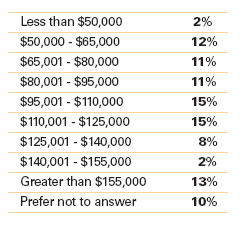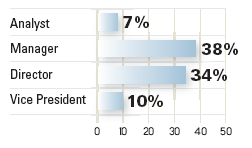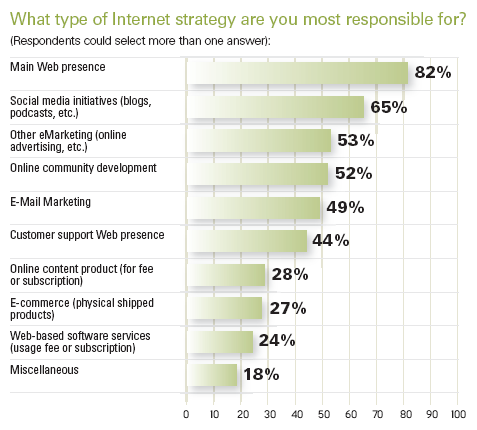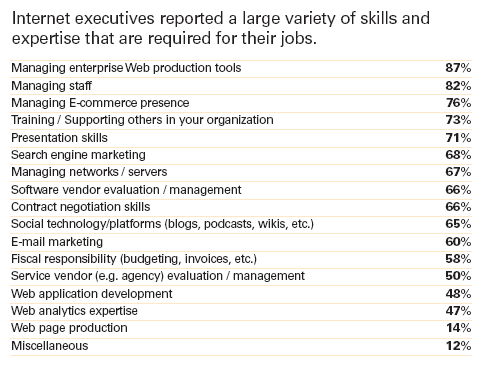State of the Internet Executive

By Steve Gehlen, Founder and Executive Director, Internet Strategy Forum
The Internet Executive goes by many names. Often, a company's website guru has a litany of job functions, and that makes the position difficult to define in one title. Unfortunately, this confusion can lead to problems.
The first of several issues is that the public has trouble understanding exactly what Internet professionals do, and fails to recognize it as a legitimate new profession. It can also lead to difficulties in hiring, both from a qualifications perspective and appropriate salary ranges. Because the Internet profession is relatively new and the overall job scope, responsibilities and skill requirements are still unchartered territory for many compensation analysts, some Internet executives may not be receiving fair compensation relative to their peers inside the same company. To make matters worse, many Internet position classifications have been adapted from pre-existing marketing or IT jobs and don't take into account the hybrid nature of the role.
Who are the people behind some of the most well-known corporate websites? What is their education level and professional background? What are their job responsibilities? What areas of expertise are required for them to excel?
In an effort to answer these questions and many more, the Internet Strategy Forum - a professional association for corporate Internet executives - developed a deep-dive 37-question survey that was answered by over 250 of their 1,500 members, resulting in unique insight into this important corporate function.
The answers might surprise you.
The Corporate Internet Executive Survey, underwritten by Welchman Pierpoint, a Web operations management consulting company, focused exclusively on the executives responsible for driving strategy and implementation for their company's Internet presence.
The objectives of the research study are:
- Achieve a comprehensive understanding of corporate Internet executive roles and the people who fill them. - Educate the broader business community about the role and value of in-house corporate Internet professionals. - Help determine future professional development offerings of the Internet Strategy Forum.
Background Data
Generally speaking, the most typical survey respondent is male, 35-54 years old with a Bachelor's Degree and earning more than $95,000 annually, while managing a staff of three or more people.
Specifically, nearly 70 percent of respondents are 35-54 years old, with the next largest segment represented by 18-24 year olds, at 26 percent. The male-to-female ratio is 2.3 to 1. Just under half have a Bachelor's Degree as their highest level of education, with 42 percent earning a Masters Degree.
Prior to becoming full-time Internet executives, the respondent's professional background varies greatly. The majority come from traditional marketing positions, followed closely by traditional Information Technology positions. Other areas garnering at least 10 percent of responses include graphic design, application development, customer support and sales. Only 15 percent of respondents have been working as an Internet professional since college.
Job Descriptions and Salaries
Not surprisingly, higher salaries typically go to those responsible for large budgets. However, and somewhat surprisingly, at the $110,000 - $125,000 salary range, experience is not always an indicator. Twenty percent of respondents with 1-5 years of experience reported earning that much, while only 13 percent of those with 10 or more years of experience reported the same. This could be signs of age discrimination in this young profession. If that's the case, HR professionals should be on guard so it doesn't become a trend.

Even after grouping similar job titles, the complete survey report includes a list of respondent job titles that runs across three columns for two-and-a-half pages - a true testament to the disorganized nature of Internet executive titles.
For the Internet profession to mature, the job title and position description situation needs to be addressed on an industry-wide basis. Only when some standards are set can the profession gain a high level of visibility and credibility. The Internet Strategy Forum plans to publish job title recommendations for the industry as a result of these and other survey responses.
To help make sense of the job title variations and give perspective to survey responses, the survey asks respondents to categorize their job title into one of four levels:

These "traditional" job titles were chosen by respondents to describe their positions within their organizations as they saw best fit. In the full report, these categories are equated with question responses as cross-tabs, to help other executives relate their experience accordingly. The good news is that it's evident the Internet executive is holding a prominent role in their organizations, even if they have yet to be fully defined.
To further add to the picture of the people filling these roles, it is useful to know their responsibilities. The majority of respondents are responsible for public-facing websites and just under half are responsible for their company's social media and community presence. About 40 percent are responsible for their company's Intranet, many times in combination with the public facing site. The majority of the public-facing sites are Business-to-Consumer sites, followed closely by Business-to-Business. At left is a list of the top 10 responses to the question, "What type of Internet strategy are you most responsible for?"

You can see that four of the choices garnered over 50 percent of responses, and another two topped 40 percent. This clearly demonstrates the hybrid nature of the Internet executive. Looking at these responses, it's also clear how vital the position is to a company's overall success.
In order to perform in these roles, Internet executives reported a large variety of skills and expertise that are required for their jobs.

Again, the broad scope of tasks is evident. Unfortunately, many outside of the profession have no idea what is required to successfully manage a corporate Web presence. That needs to change.
The Internet Strategy Forum hopes that distribution of this information within the business community will help raise awareness about the Internet executive role and help better demonstrate the value these people bring to the table for their company.

Subscribe to Our Newsletter!
Latest in Marketing








